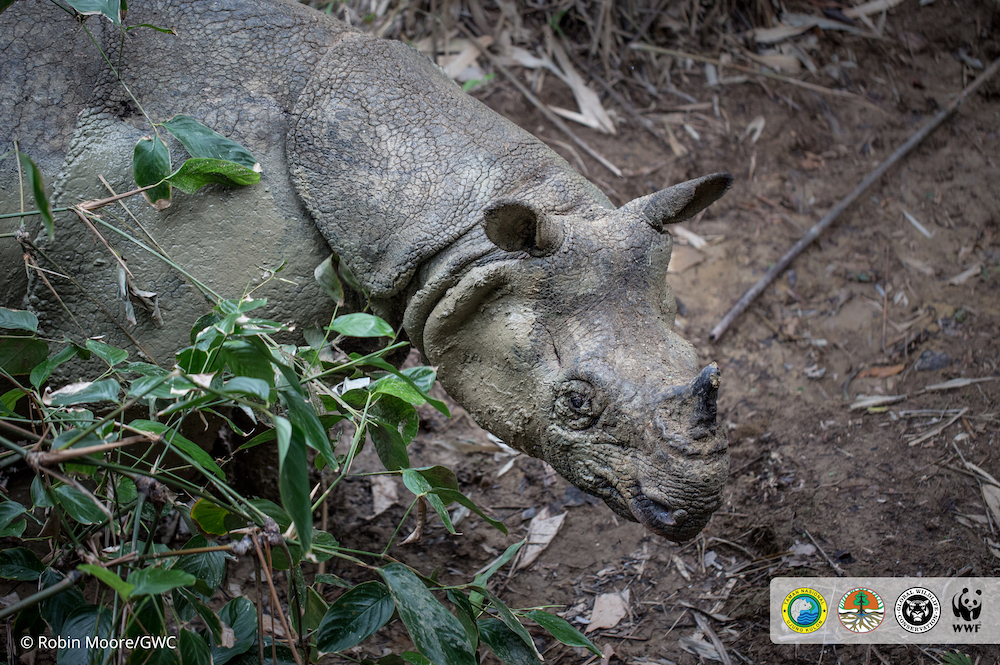Two new calves have been spotted in Ujung Kulon National Park, bringing the Javan rhino population up to 74! They have been named Helen and Luther.
‘Why is this a celebration?’, you might ask – after all, the entire population is just 74. The truth is, you’re right, and we are worried; there aren’t even 75 Javan rhinos left in the world, and the species’ future looks precarious. Nevertheless, this latest news is a big step forward.
It means that the last remaining population of this Critically Endangered species is growing. It means that the Javan rhinos alive today are healthy, they are able to find enough good sources of food, and they are able to find mates to breed successfully.
Of course, none of the above means that they are out of trouble – far from it. But it does give us hope. The species has grown by almost 50% since 2010, when there were only 50 Javan rhinos left. This is a phenomenal achievement, all thanks to the dedication of those working to protect this species now and for the future.
With so few Javan rhinos living today, seeing a Javan rhino in the wild is extremely rare, even for teams that patrol the jungle for up to two weeks at a time. In fact, recent footage of a Javan rhino taking a mud bath was an incredible insight into the life and behaviour of this species. Spotting these two new calves was only possible thanks to camera-trap footage, just like that of the rhino taking a mud bath. Footage from cameras throughout the Park is monitored and analysed by expert Rhino Protection Units, providing an accurate count of the overall population, and sharing glimpses of good news, like the births of Helen and Luther.
While a species is Critically Endangered, or endangered at all, we will always strive to find ways to improve the situation and work alongside our partners to make a positive impact. For Javan rhinos, we will – and we must, for the fate of the species – continue to do so, yet we will also celebrate this milestone.
The births of Helen and Luther show that Javan rhino conservation programmes (including patrols by Rhino Protection Units and projects to remove the invasive Arenga palm) are working. Their births are a sign that all of you, the people supporting these efforts, are making a difference. This news gives us more motivation than ever to continue this crucial work, so that more incredible Javan rhino calves, just like Helen and Luther, are born in the future.









